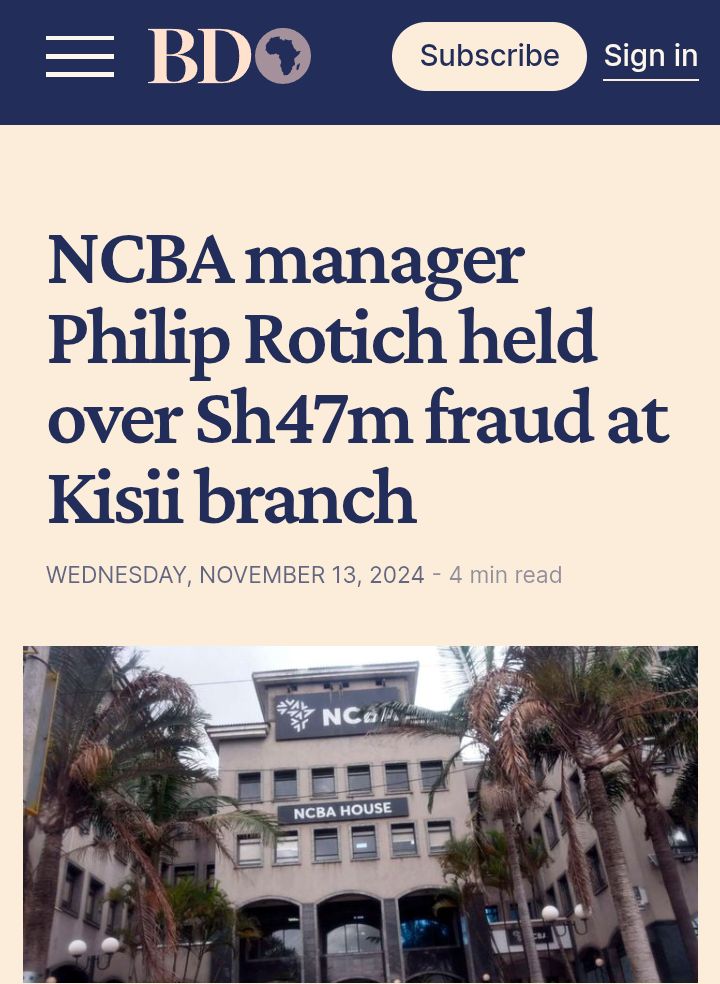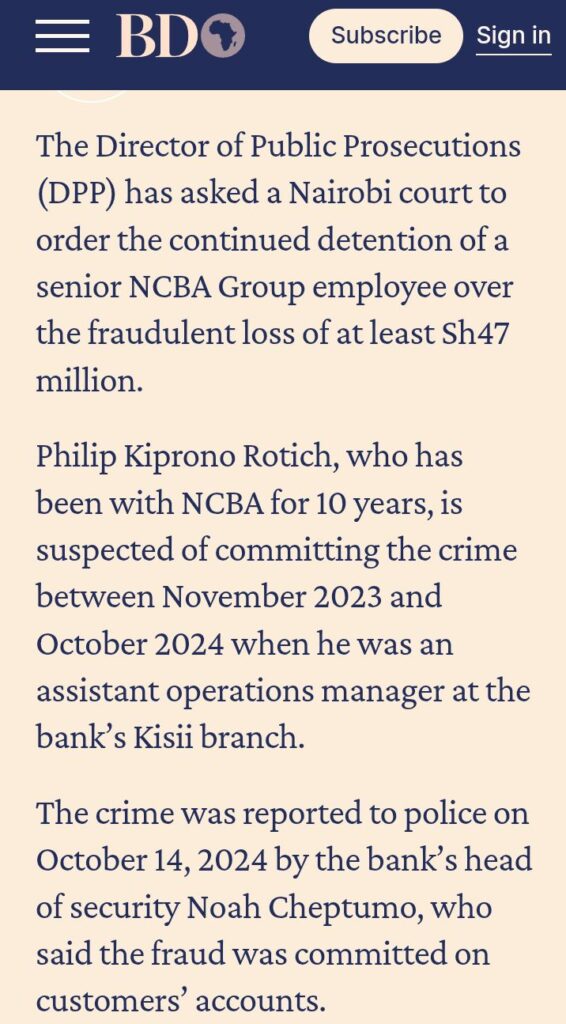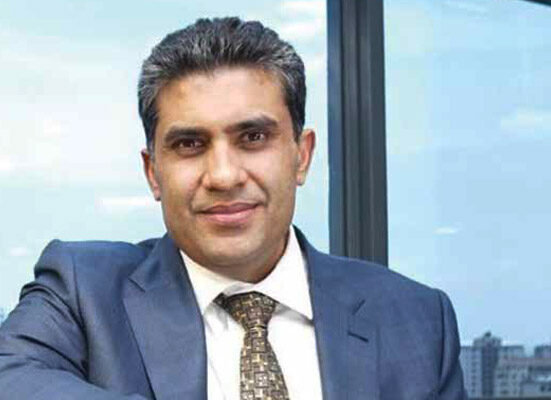On Wednesday, November 13, 2024, a shocking scandal involving NCBA Bank came to light, tarnishing its reputation and raising serious concerns about its internal controls and corporate ethics.
The scandal revolved around Philip Kiprono Rotich, an assistant branch operations manager at NCBA’s Kisii branch, who was arrested for allegedly embezzling Sh47 million from customer accounts.
This incident, published by Business Daily Africa, exposed not only the actions of one individual but also the systemic failures within the bank that allowed such a massive fraud to occur.
Philip Rotich, who had worked at NCBA for over nine years, allegedly exploited his position to siphon funds from high-profile clients, including a Catholic diocese, which lost Sh9 million, and other individuals who suffered significant financial losses.

The fraud reportedly took place between November 2023 and October 2024, during which Rotich manipulated internal bank transfer systems to divert funds into accounts belonging to his associates.
These funds were eventually traced back to his personal accounts at Kenya Commercial Bank (KCB) and NCBA, as well as mobile banking platforms linked to him.
What makes this scandal even more alarming is that Rotich continued to defraud customers even after being suspended from his position.
He allegedly took advantage of the trust placed in him by clients and colleagues, using their credentials to open fraudulent accounts and funnel stolen money.
For instance, one account in the name of Jonadette Kerubo Nyanchani received Sh4 million, which was later transferred to Rotich’s accomplices.
However, Nyanchani denied ever opening such an account, highlighting the extent of Rotich’s deceit.
The case came to light when NCBA’s head of security, Noah Cheptumo, flagged suspicious transactions and reported them to the police.
Despite this, the bank’s delayed response and failure to detect the fraud earlier have raised questions about its internal monitoring systems.
How could such a staggering amount of money be moved undetected for nearly a year? This incident underscores the need for stricter oversight and enhanced fraud detection mechanisms within financial institutions.
NCBA’s reputation has taken a severe hit due to this scandal. The bank, which prides itself on being a leading financial institution in Kenya, now faces intense scrutiny over its corporate governance and ethical practices.
This is not the first time NCBA has been embroiled in controversy.
Previous incidents, such as the wrongful listing of a prominent lawyer on a credit bureau and the questionable tax waiver during its merger with NIC Bank, have already raised doubts about its commitment to fair and transparent business practices.
For customers, this scandal serves as a reminder to be vigilant when dealing with financial institutions. It is crucial to regularly monitor bank statements, report any suspicious activity immediately, and avoid sharing personal information with bank employees.

While banks are expected to safeguard clients’ funds, this case shows that internal fraud can still occur, and customers must take proactive steps to protect themselves.
The Philip Rotich scandal is a wake-up call for both NCBA and its customers. The bank must take immediate steps to strengthen its internal controls, improve transparency, and rebuild public trust.
For customers, it is a reminder to stay alert and cautious when entrusting their money to any financial institution.
One thing is clear NCBA has a long road ahead to restore its credibility and ensure such a scandal never happens again.













Leave feedback about this